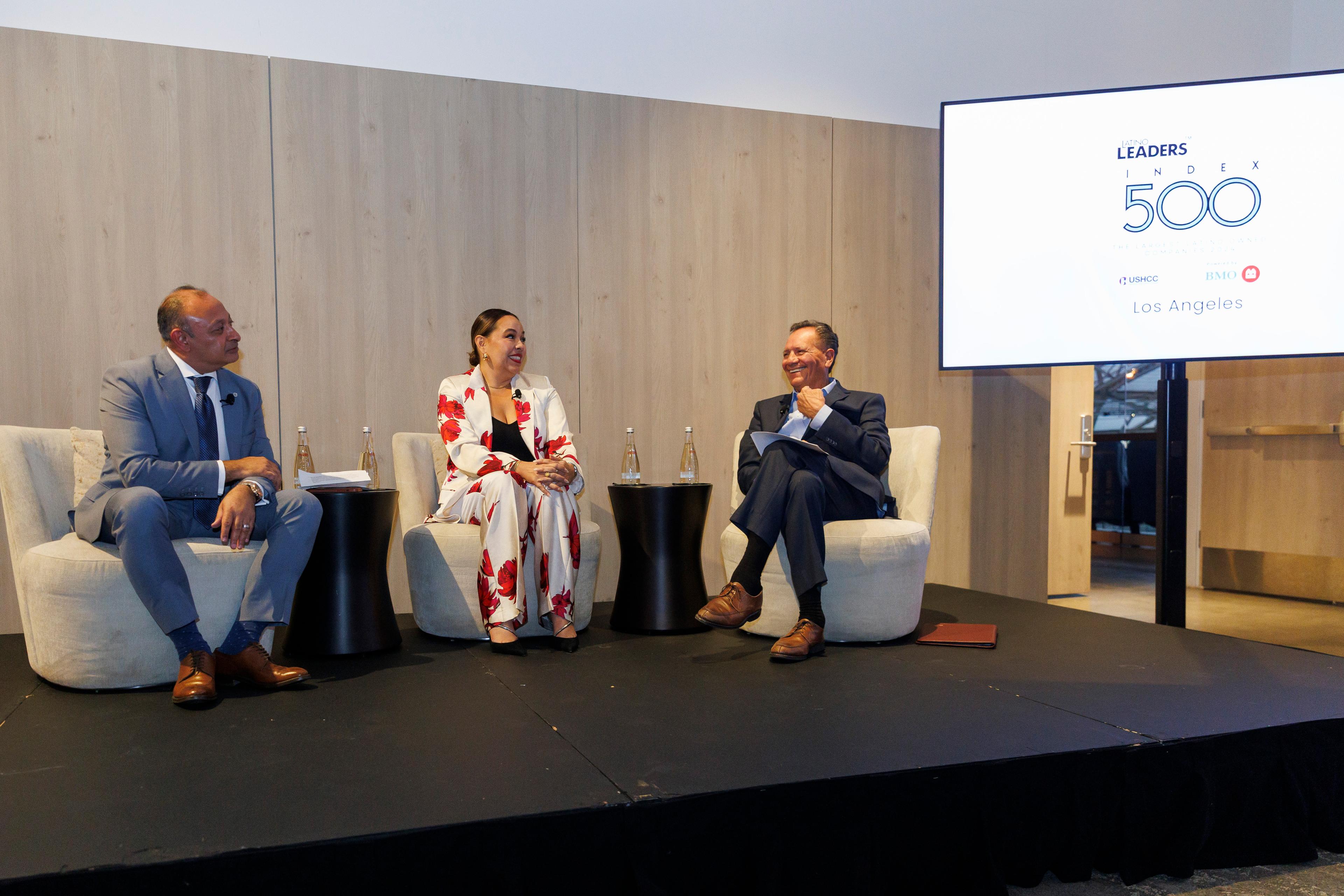Our Latino segment at BMO has proudly showcased the largest Latino-owned companies for the last two years by partnering with Latino Leaders magazine. This year, we are incredibly proud to contribute to the growth of the Latino Leaders Index500, Powered by BMO. Expanding from 200 to 500 companies speaks volumes about how important and valuable Latino businesses are to the American economy.
In this episode of Markets Plus, I had the privilege of sitting down with two leaders who are advocates for the Latino community to share their stories that can help all entrepreneurs:
George L. Pla, Founder, President, and CEO of Cordoba Corporation, a nationally recognized civil engineering, program, and construction management firm specializing in transportation, education, and water and energy infrastructure. George is an entrepreneur, philanthropist, and author whose business and civic activities focus on enhancing and empowering communities throughout California.
Fatima Djelmane Rodriguez, Chief Executive Officer, Ronald McDonald House Charities of Southern California, the first Latina CEO of Ronald McDonald House Charities of Southern California (RMHCSC), is a beacon of servant leadership, standing out in her role by driving impactful and compassionate change.
Markets Plus is live on all major channels including Apple, and Spotify. Start listening to our library of award-winning podcasts.
